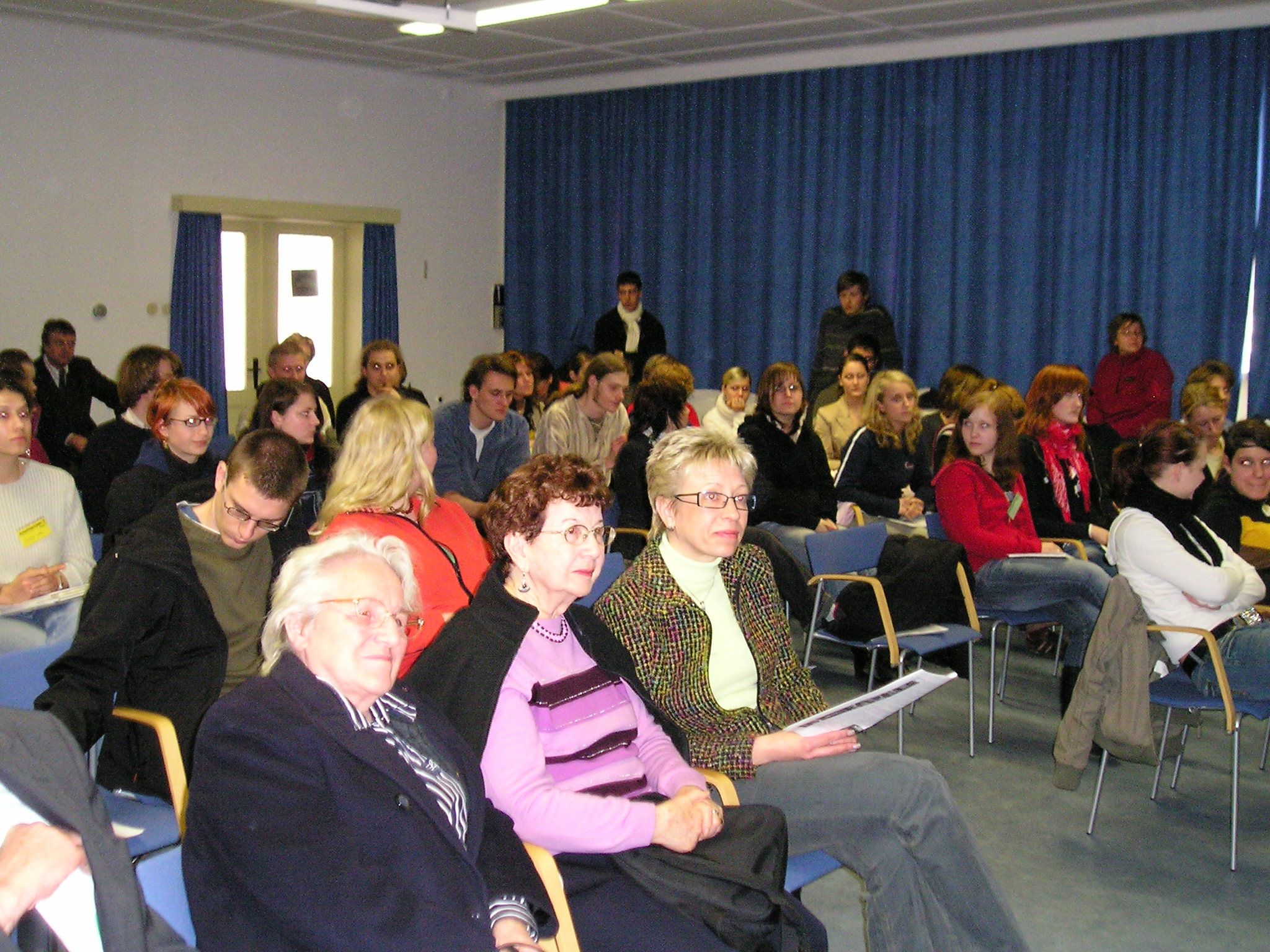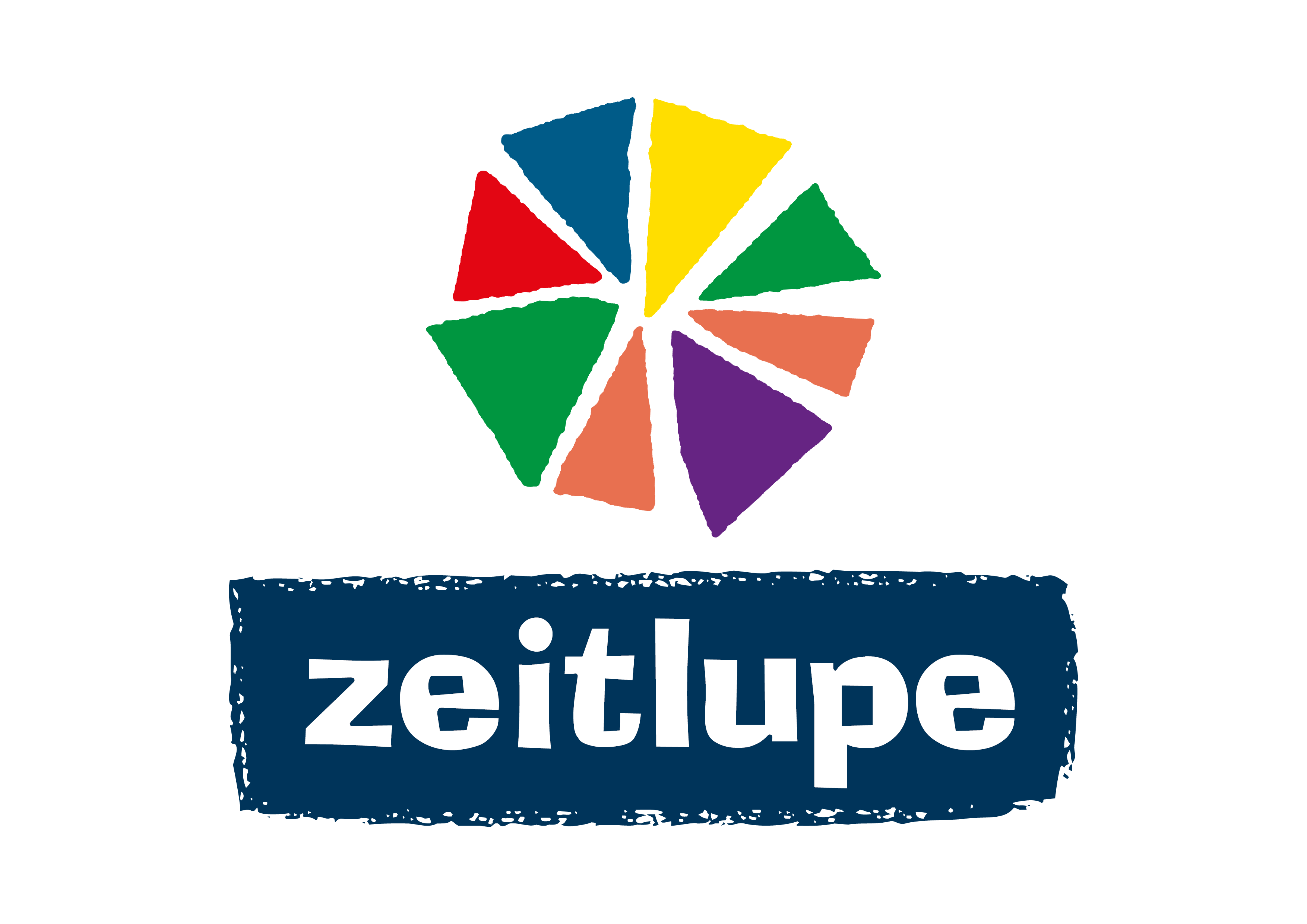"I see education as the key to a better future. It is so easy to inculcate hatred - and so difficult to inculcate love and respect for others." Batsheva Dagan (1925-2024)
"I see education as the key to a better future. It is so easy to inculcate hatred - and so difficult to inculcate love and respect for others." With these words, Batsheva Dagan concluded her speech to students and teachers at the Karolinum-Gymnasium in Neustrelitz in May 2006. Often she repeated this. For me, it is the central motto of her decades-long international commitment.
On January 25, Batsheva fell silent forever. For me, she is one of the most important voices in the memory of Auschwitz. A tireless fighter for a better world, for dialogue and encounter.
Batsheva Dagan – from Łódz to Schwerin
Batsheva Dagan was born Izabella Rubinstein in Łódz on the 8th of September 1925. After the occupation of Poland, she went to Radom with part of her family. After the Germans set up a ghetto there in 1942, she fled to Germany with forged papers. She was forced to work as a maid for a district court judge in Schwerin. Following a denunciation, the Gestapo arrested the young Jewish Polish woman. Initially imprisoned in Güstrow, then in other prisons, including Neubrandenburg, the Gestapo finally deported her to the Auschwitz-Birkenau concentration camp. She only survived there because fellow prisoners were able to find her a job in the dry. In the so-called "effects chamber" in Auschwitz-Birkenau, she had to sort clothes - and heard the wails and screams of children, women and men from afar as the SS crammed them into the gas chambers.
From Auschwitz to Malchow
After 20 months in prison, the 19-year-old reached Ravensbrück in January 1945 on an evacuation transport. Like many Jewish women and girls, she was taken from there to the Malchow (Mecklenburg) subcamp after a short stay. Many female prisoners had been forced to work in the munitions factory there since 1943. In 1945, the camp, with 5,000 women and girls, was nothing more than an overcrowded death camp where indescribable conditions prevailed. Batsheva Dagan and others came up with the idea of weaving old scraps of cloth and sewing them together to make doormats in order to earn an extra portion of soup.
From Brussels to Palestine
After her liberation, she emigrated to Palestine, where she married in 1946 and had two sons. After the sudden death of her husband in 1957, she supported herself and her children as a kindergarten teacher while studying psychology. Batsheva Dagan then lived in Holon near Tel Aviv. As a child psychologist, she worked a lot with children with behavioral problems and children with disabilities. She also trained educators and teachers for the psychological service.
Traveling internationally
Able to communicate in seven languages, fluently in at least four of them, she was a welcome interlocutor and speaker internationally. Whether as a guest lecturer at universities or as a speaker at the Yad Vashem, Auschwitz-Birkenau or Ravensbrück memorials, whether as a contemporary witness in the schools of Mecklenburg-Vorpommern or as a poetry reciter in the Schwerin state parliament or elsewhere in the world - Batsheva Dagan loved conversation, poetry and music.

She achieved great fame with her children's books, including "Chica - The Dog in the Ghetto", "If Stars Could Talk" and "What Happened in the Shoah? A Story for Children Who Want to Know". With books like these, she wanted to teach very young children what happened when their (great-)grandparents were children.
However, her stories "naturally have a happy ending", as she never tired of emphasizing, "it is my duty not to rob the children of hope." Her books are read in all Israeli kindergartens, they have been translated into several languages and have also been well known in German-speaking countries for many years. A volume of poems that she wrote after her time in the camp was published in 2005 under the title "Blessed be the imagination - cursed it be! Memories from 'There' published by Metropol Verlag in Berlin. The State Center for Political Education in Saxony-Anhalt ensured that educational materials were created around the children's book "Chica, the Dog in the Ghetto", after an animated film had been made based on this book.
I say goodbye – sadness in my heart and joy over 20 years we shared
In my numerous encounters, conversations and readings with Batsheva Dagan, I learned a lot about life. I have never been able to discuss philological, philosophical or psychological problems with anyone in such depth. With no one could I giggle so heartily. With no one could I share my love of poetry and music so intensely. With no one was I allowed to get such a personal insight in their personal losses, their worries and fears. With no one so much weeping over what has been lost. And also fighting against forgetting.
In November 2023, we embraced for the last time in Malchow. 98 years old, but somehow we both still thought that after all the death you had to experience, you yourself would live forever….
Not naive, no, you never were: "Since I turned 80, every day has been a gift for me," you used to say. And you started jumping and dancing. For the joy of life, but also a bit to stay fit.
"Yofi", that was the exclamation when you were happy. Or rebellious. Or someone else made you happy.
You said "Yofi" when the current mayor of Malchow, René Putzar, made a firm promise to redesign the concentration camp memorial in his island town with the help of a whole round of supporters.
"I say 'Yofi' for allowing me to accompany you on your journey through life for almost 20 years.
"Hopefully, future generations will ensure that the tragic fate of the victims remains unforgettable. And that such terrible dictatorships can never arise again."
That was your wish and the wish of many survivors of the concentration camps.
We will take it to heart!
Constanze Jaiser, in February 2024





